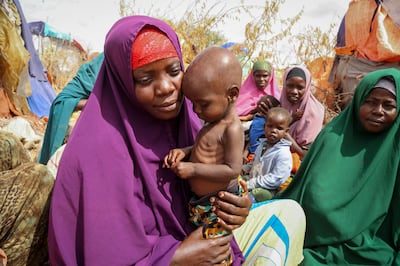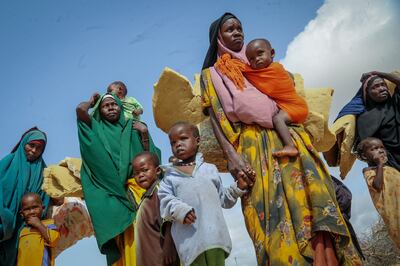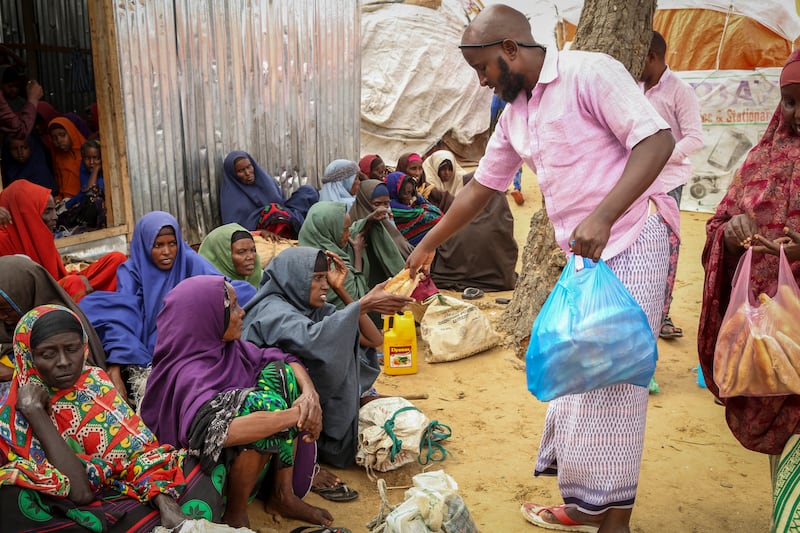As new figures show global food insecurity has almost doubled in the past four years, former British prime minister David Cameron said world hunger is not “inevitable”.
Failure to address hunger would hinder progress in fields such as health care and education around the world, as millions of people in East Africa continue to face food shortages, Mr Cameron said.
At the launch of the new organisation United Against Malnutrition and Hunger in London on Wednesday, Mr Cameron said: “Without action to tackle hunger, the other things we want to achieve, whether it is better education, childcare or health care, these things we cannot make progress on.
“If you can’t eat, you can’t parent, you can’t bring up children, build a future. Ultimately, if you can’t eat you can’t live.”
The former Tory leader highlighted findings published by the organisation on Wednesday, which suggest record levels of people are without reliable access to nutritious food.
“There’s one, just basic simple figure, which is the number of people facing crisis levels of food insecurity from 146 million in 2019 to 278 million today,” he said.
“This is not inevitable — the reason for these sorts of events is we can do something about it.”

UAMH aims to raise awareness of the issue of global hunger and encourage the UK government to increase its investment in nutritional aid, after persistent cuts to the aid budget that it says fell disproportionately on the issue of malnutrition.
Humanitarian and aid organisations have warned parts of East Africa are on the brink of famine, with millions of people facing food shortages after several failed rainy seasons hit production.
Somalia is among the worst affected countries, with Save the Children estimating about 70 per cent of families do not have enough food and six million people are suffering extreme hunger.
Wafaa Saeed, a representative for the UN children's fund in Somalia, also spoke at the event, where she gave an update on the situation in the East African country.
“There are mothers who have been walking for sometimes three to five days, to a place or facility to seek treatment for children who are very, very sick,” she said.
“These are mothers that have buried children along the way. It’s a very significant, serious situation for people in Somalia.”

The chief executive of UAMH, Lord Jonny Oates, explained the impact that malnutrition can have on a child’s life.
“The ages of one to five are crucial for a child’s development, and if they don’t have proper nourishment, they don’t develop properly, cognitively or physically,” he said.
“That means they are less productive, less able to benefit from education and less able to contribute to their societies.”







